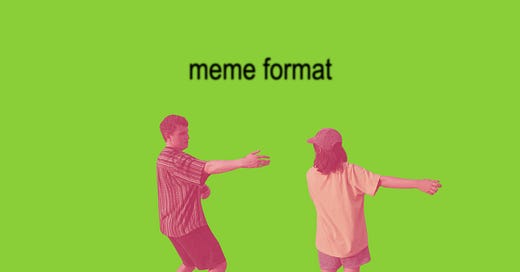Winking, not laughing: The plague of meta comedy
How post-modern filmmaking is killing the blockbuster comedy
On a recent Sunday morning, my flatmates and I watched Zombieland: Double Tap - the sequel to 2009’s Zombieland.
Despite my undoubted – and unearned – film snobbery, I think my taste is amenable. I am aware of the occasional necessity of mindless entertainment. One’s capacity for “high art” fluctuates, and I’m not above whacking on The Martian to accompany a mid-afternoon doom scroll.
However, even with my charitable spirit, I despised Double Tap. It is a soulless cash-grab of a movie, the locus classicus of Hollywood studios’ intellectual property gutter-trawling, wringing every penny out of the audience loyalty sponge.
There is much to hate, including the sexless coupling of Jesse Eisenberg and Emma Stone, and Abigail Breslin’s wincing portrayal of screenwriters Rhett Reese and Paul Wernick’s idea of teenage angst.
But of all the lobotomised schlock in Double Tap, nothing stoked the coals of my rage more than the opening lines.
“Welcome to Zombieland. Back for seconds? After all this time? Well, what can I say, but thank you. You have a lot of choices when it comes to zombie entertainment, and we appreciate you picking us.”
Hearing this, I was devastated. My Sunday morning was to be subjected to the scourge of modern blockbusters: meta comedy.
“Meta comedy?” you may ask. And the person to answer you, dear reader, is Thomas Flight, in his excellent video essay on the modernism, postmodernism and metamodernism trends in film history.
But, to briefly plagiarise, Flight’s definitions shake out like this.1
Modernistic filmmaking, amongst many features, seeks to trick the audience into forgetting they are watching a movie. There are internal rules relating both to story and form which are never broken, keeping the cogs of the empathy machine turning, and the viewer’s belief suspended.
Post-modern films have no such qualms. The “rules” of cinema are regularly flaunted, drawing attention to the film’s own conventions. These movies are self-referential, asking the audience to reckon with both medium and message.
Think of the police halting filming in Monty Python and the Holy Grail, or the references to underwhelming sequels in 22 Jump Street, or here in Double Tap, where the audience is directly addressed. These are meta moments in post-modern films.
Meta techniques are not novel. In A Midsummer Night’s Dream, Puck’s closing remarks allude to the play being a falsehood, portrayed by actors. And they are not, despite my visceral reaction to Eisenberg’s own aside in Double Tap, inherently bad.
There are countless examples of talented filmmakers using meta stylings to conjure rich, delicate moments.
In Aftersun, Charlotte Wells shows the subjectivity of recorded memory as the semi-autobiographical Sophie films herself in her hotel mirror. Wes Anderson, in Asteroid City, questions the value of storytelling with his customary television drama-within-a-play-within-a-movie approach. Even Martin Scorsese, who appears on-screen during the Fellini-esque coda to Killers of the Flower Moon, has dabbled with post-modern techniques.
There are countless examples of talented filmmakers using meta stylings to conjure rich, delicate moments.
However, as with most artistic movements, the grassroots fun of the post-modern movement has fallen into the scaly grip of industry. Watch most major studio comedies since the release of Deadpool, and you’re sure to see the fourth wall reduced to rubble, and sardonic, quippy, self-referential dialogue gushing into the cultural conscience.
Humour, perhaps beyond drama, is dependent on individual taste. And I am, if it isn’t clear yet, sick of meta comedies.
Watch comedies from any era – films like Four Weddings and a Funeral, Spinal Tap, Broadcast News, Bridesmaids, Paper Moon, or even The Hangover – and you’ll find them filled with gorgeously rendered characters. The humour comes from what we know about the individuals and their relationships, the laughs from who says as much as what is said.
The characters have to be richly rendered, otherwise the audience won’t care enough to invest in the world of the film. But in postmodernism, the characters’ world is regularly undercut; why then would a screenwriter extend themselves to make each individual rounded and distinct?
It saps the stakes from the film. And, it’s lazy. Empathy is replaced by a wink to the camera, a shrug which invites you to think “we all know what’s going on here”. How are we meant to engage with stories when they are so glibly told?
If you’ll allow me some two-bob cultural analysis, I believe social media is the main culprit behind the current meta trend.
We are an audience accustomed to being directly addressed. We expect to be part of the narrative, our views considered, formulated and included in the things we consume. The scrutiny of the internet has also festered a crushing self-awareness. We relentlessly acknowledge the connotations of our taste or opinions, hoping to avoid misunderstanding or criticism.
Our films mirror this, constantly pointing out the conventions they fulfil, much the same way someone might preface an admiration for Big Thief with the caveat, “I know it’s a bit pick-me-indie-soft-boy, but…”
Whatever the root causes, the result is a slew of Hollywood releases with regurgitated tropes, cloaked in self-knowing. It leaves me feeling cheated, and it certainly isn’t funny.
Studio executives are pretending we’re in on the joke, as opposed to the butt. And that, as I attempt to end this piece on a sharp closing line, is no laughing matter.
I won’t delve into Flight’s concept of metamodernism. It has something to do with underlying ideologies, stuff I’m really not bright enough to write about. However, it’s definitely worth watching the video - it’s interesting stuff!




